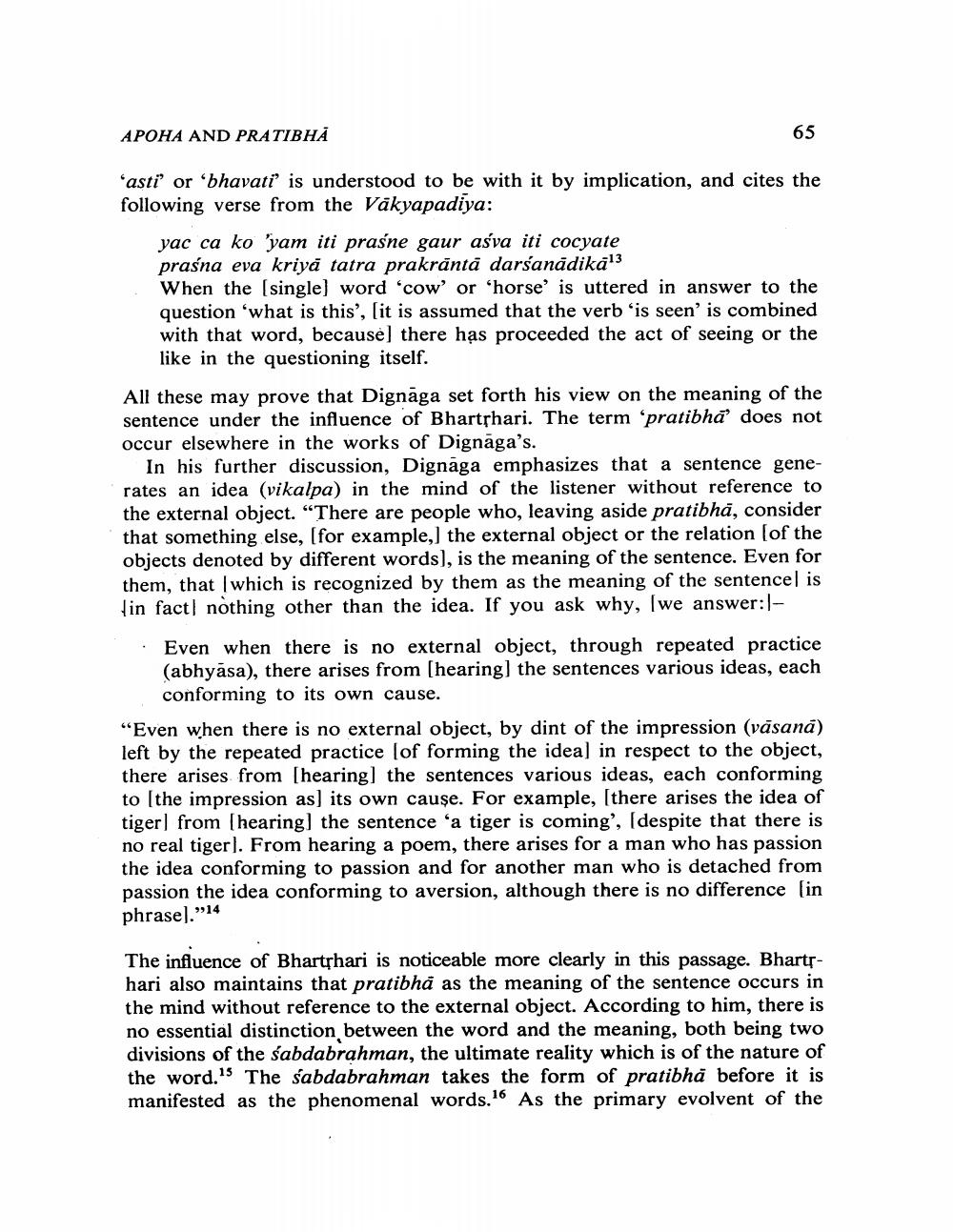Book Title: Apoha And Pratibha Author(s): Masakki Hattori Publisher: Masakki Hattori View full book textPage 5
________________ APOHA AND PRATIBHA 65 ‘asti' or 'bhavati' is understood to be with it by implication, and cites the following verse from the Väkyapadiya: yac ca ko 'yam iti prasne gaur asva iti cocyate praśna eva kriya tatra prakrāntā darśanādika 3 When the (single) word 'cow' or 'horse' is uttered in answer to the question 'what is this', (it is assumed that the verb 'is seen' is combined with that word, because there has proceeded the act of seeing or the like in the questioning itself. All these may prove that Dignāga set forth his view on the meaning of the sentence under the influence of Bhartshari. The term 'pratibha' does not occur elsewhere in the works of Dignaga's. In his further discussion, Dignaga emphasizes that a sentence generates an idea (vikalpa) in the mind of the listener without reference to the external object. “There are people who, leaving aside pratibhā, consider that something else, (for example, the external object or the relation (of the objects denoted by different words), is the meaning of the sentence. Even for them, that which is recognized by them as the meaning of the sentencel is in fact nothing other than the idea. If you ask why, (we answer: - · Even when there is no external object, through repeated practice (abhyāsa), there arises from [hearing) the sentences various ideas, each conforming to its own cause. “Even when there is no external object, by dint of the impression (vāsanā) left by the repeated practice (of forming the idea) in respect to the object, there arises from [hearing) the sentences various ideas, each conforming to (the impression as its own cause. For example, there arises the idea of tiger) from [hearing) the sentence 'a tiger is coming', (despite that there is no real tiger). From hearing a poem, there arises for a man who has passion the idea conforming to passion and for another man who is detached from passion the idea conforming to aversion, although there is no difference in phrase).”14 The influence of Bhartphari is noticeable more clearly in this passage. Bhartrhari also maintains that pratibha as the meaning of the sentence occurs in the mind without reference to the external object. According to him, there is no essential distinction between the word and the meaning, both being two divisions of the sabdabrahman, the ultimate reality which is of the nature of the word." The sabdabrahman takes the form of pratibha before it is manifested as the phenomenal words. 16 As the primary evolvent of thePage Navigation
1 ... 3 4 5 6 7 8 9 10 11 12 13
